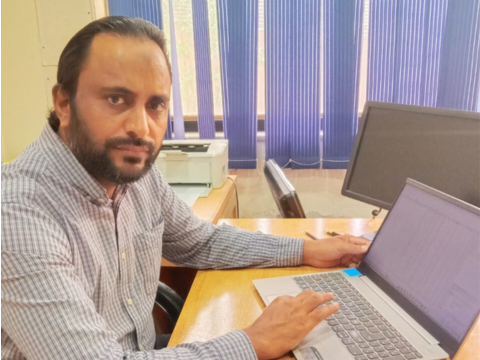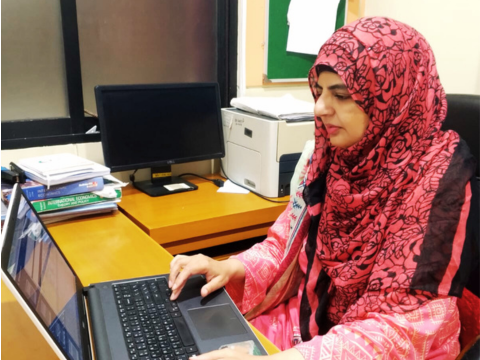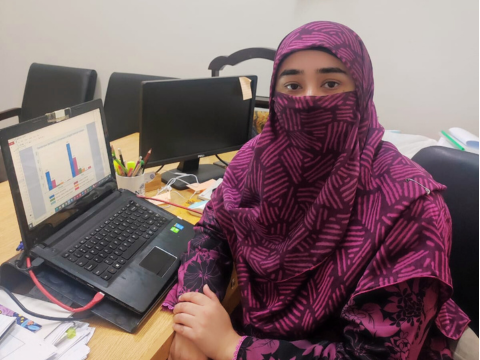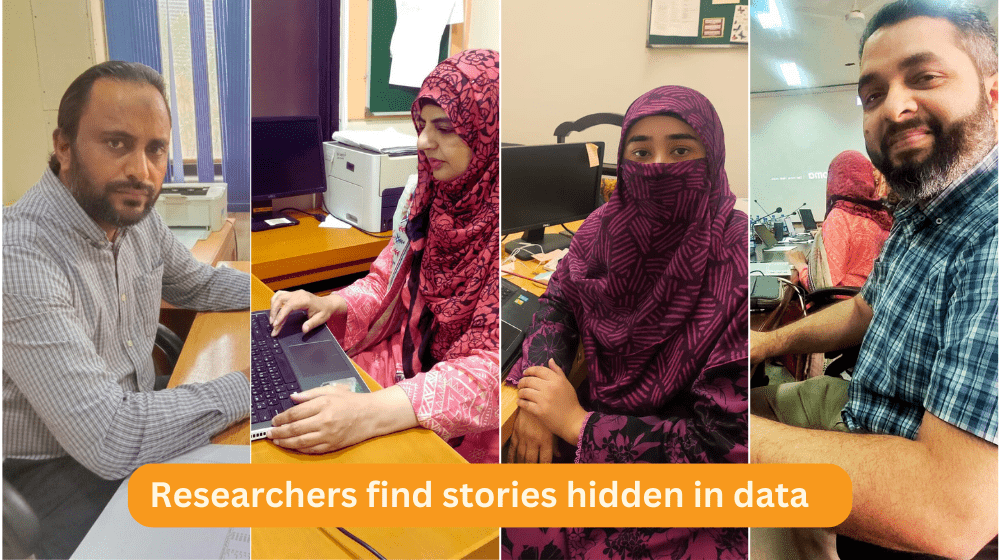Pakistan, the land nestled between the majestic Himalayan mountain range and the Indus delta as it flows into the Indian ocean, is home to 3% of the world’s population. It is not only a country with abundant natural resources but also with huge untapped potential of its people. Pakistan, the fifth most populous country in the world, must calibrate its resources with the population. This calibration requires reliable and inclusive data, as a tool to promote progress for all.
Who, where, when and how much?
For progress, for meeting the needs of everyone and for leaving no on behind, it is important to know who, where, when and how much? Only data can reveal what is overlooked or what should not be omitted. To see the story of how Pakistan is evolving as a country, it needs the basic building blocks of data. Data guides to answer to question such as where cities and urban centres are growing, where hospitals, schools and roads are needed? Which crops and agriculture to invest in that not only feed the population but also ensure that their nutritional needs are addressed adequately? Data tells us how cultural constructs that might have served a smaller population no longer serve the growing country’s needs. Miniscule amount of information can shape lives. Awareness, access, education and information shape the lives of a person from the moment they are born. To convert the population into an asset it is important that everyone is availed an opportunity. This will only be possible once we know who is born, when and what are the needs?
UNFPA works with the government to analyze the trends and needs of the population. How data is gathered and looked at is key to counting the invisible.
UNFPA has also fostered partnerships with academia to promote the analysis of population trends. UNFPA supported The Centre of Excellence on Population and Wellbeing Studies (CePwS), National University of Science and Technology (NUST) where data scientists and researches work on statistics from various surveys and national publications such as Demographic and Health Survey (DHS)by National institute of Population Studies (NIPS) and Pakistan Bureau of Statistics (PBS).
Data telling stories
Here are a few stories of the researchers who are analyzing the data to find stories that relate to many lives and add a piece to the puzzle.
Women bearing more children face more violence – study finds
The UNFPA is actively engaging with men and boys engaged to prevent Gender Based Violence (GBV). Two researchers from the Centre of Excellence on Population and Wellbeing Studies (CePwS) looked at indicators of what factors increased the likelihood of violence or even the acceptance of violence across economic and geographical divides.
Dr. Muhammad Ali at The Centre of Excellence on Population and Wellbeing Studies (CePwS), talked about how Demographic and Health Survey (DHS) data reveals some obvious truths, for example, that there will be greater likelihood of violence in rural areas as compared to urban areas. There is more prevalence of gender-based violence in poverty-stricken areas compared to the more affluent. However, there were some interesting data points that helped create another side of the picture.
“It really shook me to find that the higher the number of children the greater the chances of a woman facing domestic violence.” Dr. Muhammad Ali “one factor can change how we look at planning and population needs, data is the basic building block of information, the more inclusive the data the easier it is to understand how best to serve the population.”

Those married within family have more acceptance of violence
Dr. Irfan at The Centre of Excellence on Population and Wellbeing Studies (CePwS), shared some very interesting findings from his research on ‘acceptance of violence and its causes’. The research is based on data from Demographic and Health Survey (DHS) looks at what constitutes acceptability of grounds for violence against an intimate partner. The study focuses on marriages that take place within extended families as well as those outside of the extended family. The findings were startling. The people who married within the extended family have greater acceptance across all five indicators on acceptance of violence, no matter what the cause. This factor transcended their socio-economic status and the rural urban divide.
“Looking at the data is an art, it is the art of seeing people”, Dr.Irfan “ without data there are assumptions, and as the findings illustrate, most of us would have assumed the opposite to be true as opposed to what the data highlighted. This shows us what sensitive conversations and interventions we need to have as a society.”

Educated mothers raise babies better - study finds
Dr. Verda at the Center of excellence for Population and Wellbeing Studies has used data from the Demographic and Health survey (DHS), on how a mother’s education can make a difference to a child’s health no matter what their living conditions. She finds that women living in houses with earthen floors (sub-optimal flooring) have a different set of challenges as babies begin to sit up on their own and crawl. Dr. Verda analyzed the data to reveal that children whose mothers were educated would be less likely to suffer from diarrhea. Despite the challenge of living in those conditions the awareness level of the mothers made a difference in how they would deal with this stage of development.
“We have rich data coming in from Demographic and Health survey (DHS)”, says Dr Verda,” but we need more longitudinal data to correlate what our populations needs are evolving towards."

Dr. Wajiha Haq from The Centre of Excellence on Population and Wellbeing Studies (CePwS) works on economic growth indicators. She said that there is a lack of inclusive data because sometimes people feel that they are talking about something culturally sensitive or something that is personal to their family concerns. Thus, they resist talking about intimate partner violence or even family histories due to various sensitivities. She finds that mothers whose growth is stunted will have children whose growth is stunted but we need greater data because we don’t have sufficient information on how to counteract this.
“Every researcher and Data scientist believes that if you can’t measure it you can’t fix it,” Dr. Wajiha Haq

Girls who see violence in home face violence later – studies find
All data scientists and researchers stressed how the intergenerational effect of violence are visible and tell a haunting tale. The studies find that if a girl sees violence happening in her home growing up, she is 58% more likely to face violence herself. This ratio reduces to half at 29% if a girls is raised in a non-abusive and friendly household.
UNFPA’s flagship ‘State of the world population report’ earlier this year also looked at how lack of inclusive data means that there can be no planning for those who are unseen. Looking at the hidden people and the invisible load, working with Pakistan Institute of Development Economics (PIDE), UNFPA has carried out studies on ‘Counting women’s unpaid care work in Pakistan’. Sustainable and equitable future for everyone needs data to ensure that people are an asset rather than a burden and a missed opportunity.


